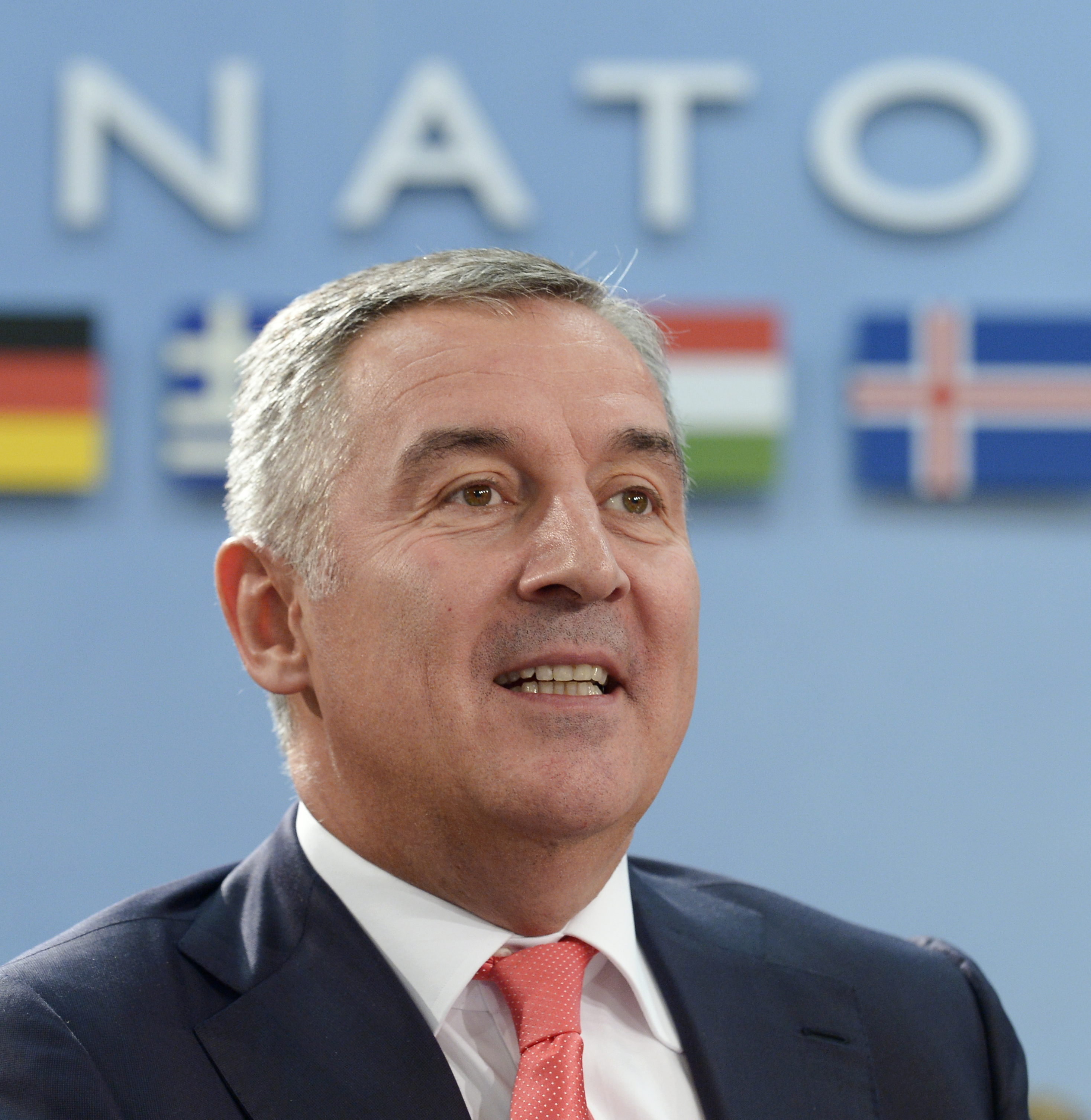
NATO foreign ministers met to finalise the alliance’s biggest military build-up since the end of the Cold War to counter what they see as a more aggressive and unpredictable Russia. At a Warsaw summit in July, NATO leaders will sign-off on the revamp which puts more troops into east European member states as part of a “deter and dialogue” strategy, meant to reassure allies they will not be left in the lurch in any repeat of the Ukraine crisis. / AFP PHOTO /
by Olivera Nikolic
PODGORICA, Montenegro (AFP) — NATO membership will be a central issue in Montenegro’s general election on Sunday, with the vote marking the latest episode in a power struggle between Russia and the West in the Balkans.
Prime Minister Milo Djukanovic, who led the small Adriatic republic to independence from Serbia in 2006, has steered the nation towards closer ties with the West, pursuing membership in both the European Union and NATO.
But Djukanovic is up against groups who oppose joining the military alliance, an issue that deeply divides the country, and analysts say he may fail to win enough support to form a stable government.
Montenegro’s recent invitation to join NATO — yet to be ratified by Podgorica as well as other member states — follows other decisions that have displeased its long-time ally Moscow.
Podgorica was among the first to recognise Kosovo’s independence in 2008, and in 2014 joined the EU’s policy of sanctions against Russia over the Ukraine crisis.
After three centuries of close friendship, Russian investment in Montenegro has markedly declined and Moscow has threatened consequences if it enters NATO.
The Democratic Front, a pro-Russian opposition group, organised huge and occasionally violent anti-NATO protests late last year, calling for unrest if the government joined the alliance without holding a referendum on the issue.
“If we win the October 2016 elections we will abolish sanctions against Russia and develop the closest economic and political ties (with Moscow),” Strahinja Bulajic, a leading Democratic Front official, told AFP.
He said the sanctions were “one of the most shameful acts in national foreign policy”.
Sceptical of NATO
Opinion polls show that while most of Montenegro’s 620,000 people support EU membership, less than 40 percent are pro-NATO, with older people in particular leaning towards Russian ties.
Many remain sceptical of NATO after its 1999 bombing campaign against the Federal Republic of Yugoslavia, of which Montenegro was part.
Pre-election surveys are not published but according to a confidential poll seen by AFP, Djukanovic’s Democratic Party of Socialists (DPS) is set to get 40-43 percent of votes — requiring the support of ethnic minority parties to form a government.
The position of opposition groups in Montenegro is complicated: not all are pro-Russian, with some in favour of joining the EU but against being part of NATO.
The Democratic Front, which is against both western alliances, is accused by the DPS of being illegally financed and supported by Russia.
Among the other former Yugoslav republics, Croatia and Slovenia have both joined NATO, while many former communist states in eastern Europe have also become members — something Russia sees as a threat to its security.
“At these elections we will decide whether we lead Montenegro into the society of European nations or we take it backwards by at least 10 years,” Djukanovic said during his campaign.
Russian investment falls
The premier’s pro-Western policies have had economic consequences.
Russia was once the leading foreign investor in Montenegro but in 2015 it cut its annual investment almost by half to just 68.9 million euros ($77.1 million).
This fell to 22 million euros in the first six months of 2016, according to Montenegro’s national bank.
While this investment has dropped off, Russia has strengthened its influence in other ways in the region, for example through media — the Kremlin-backed Sputnik agency set up a local-language portal from Belgrade last year.
At a NATO summit in July, Djukanovic urged the EU to “implement a stronger regional strategy towards rival Russia… and provide greater, more visible diplomatic support to Balkan leaders”.
Opponents of the premier, who has ruled for more than 25 years, accuse him of authoritarianism, corruption and control over the electoral process using state apparatus.
© 1994-2016 Agence France-Presse







